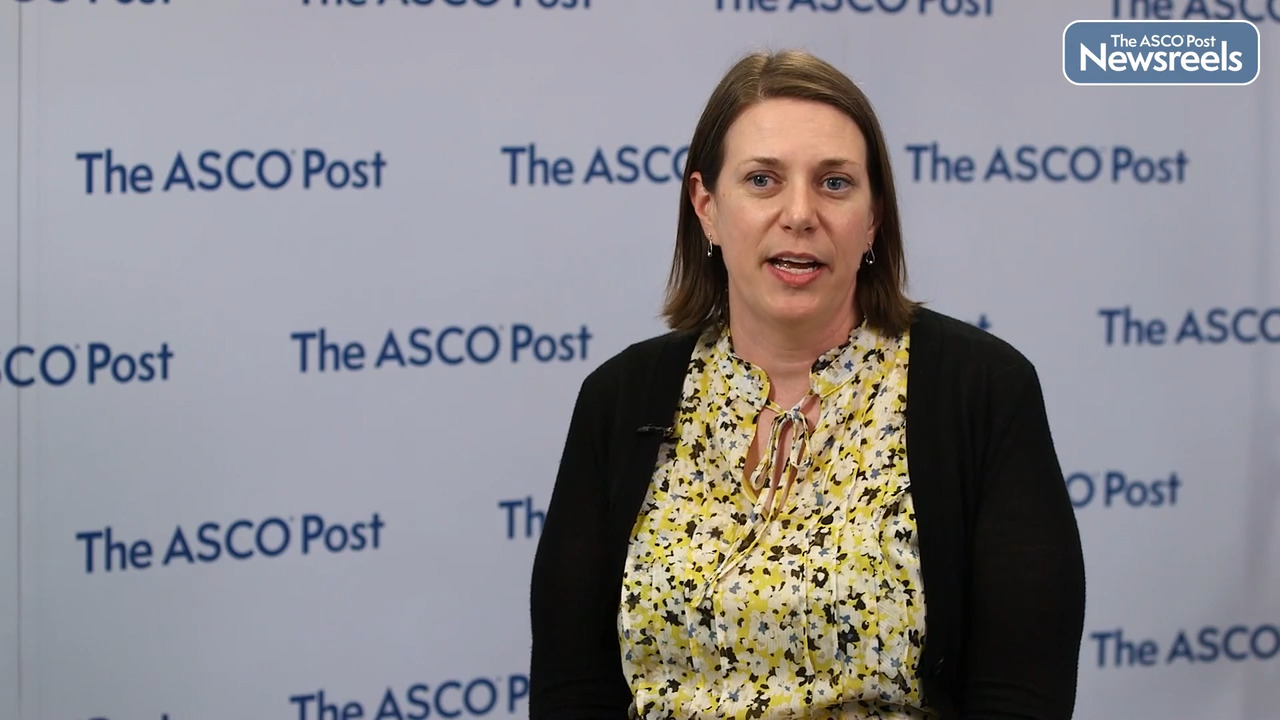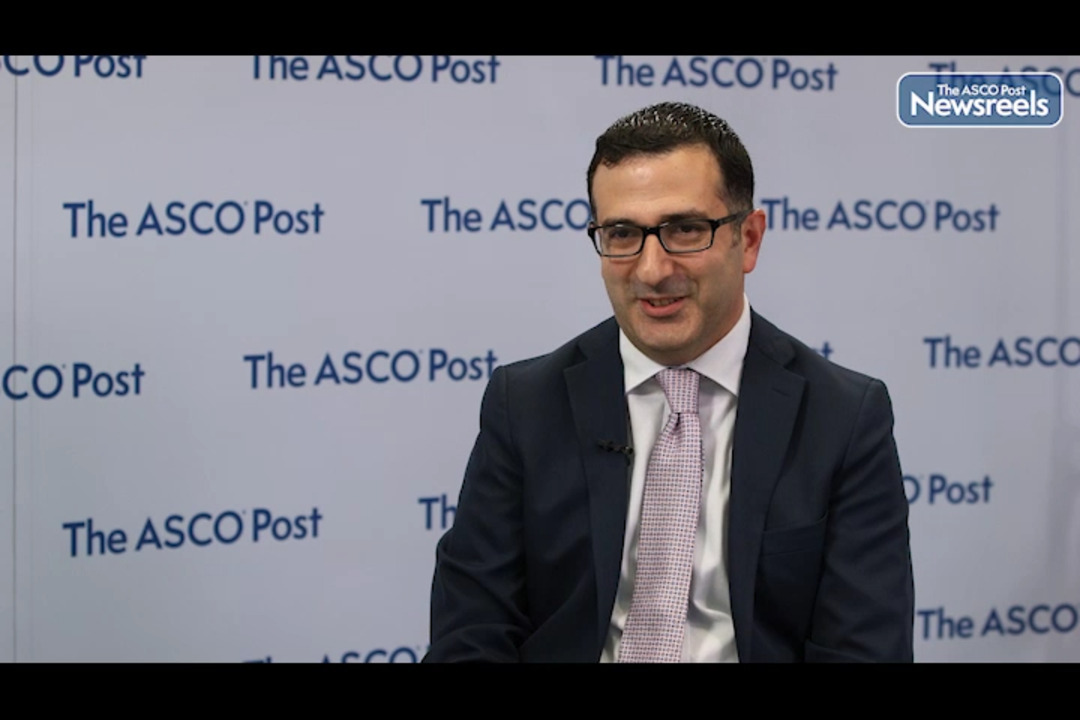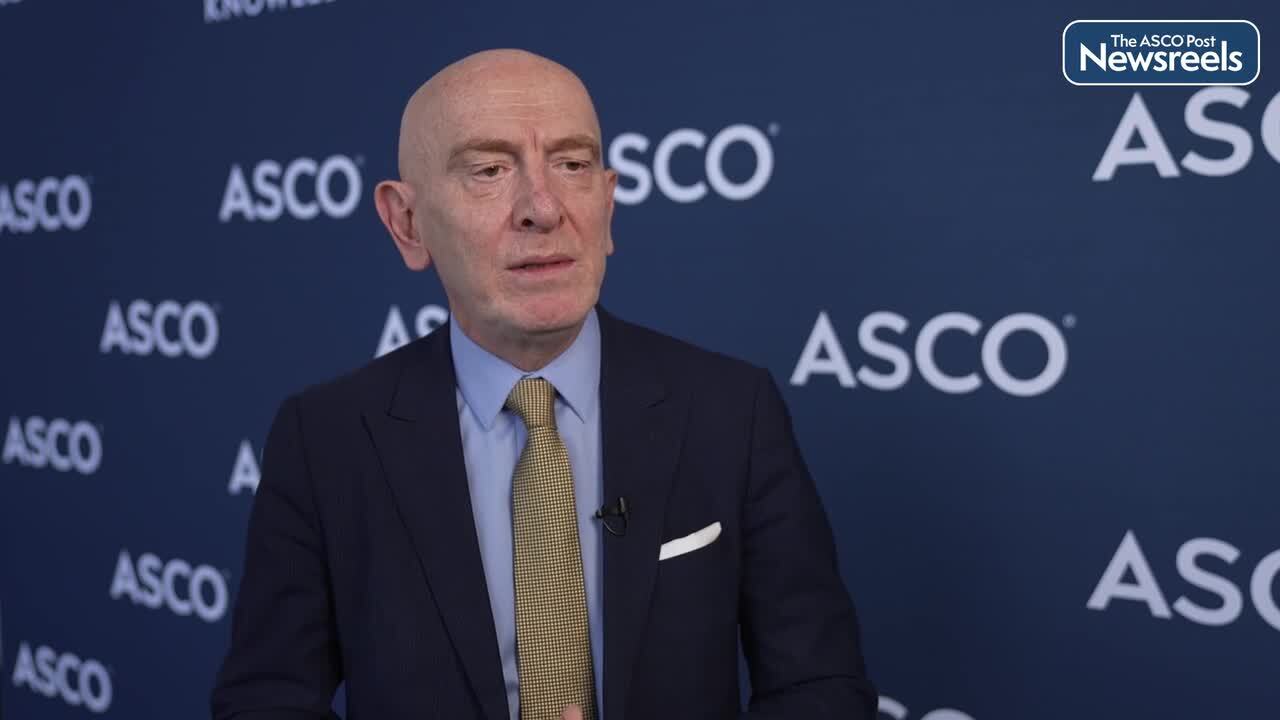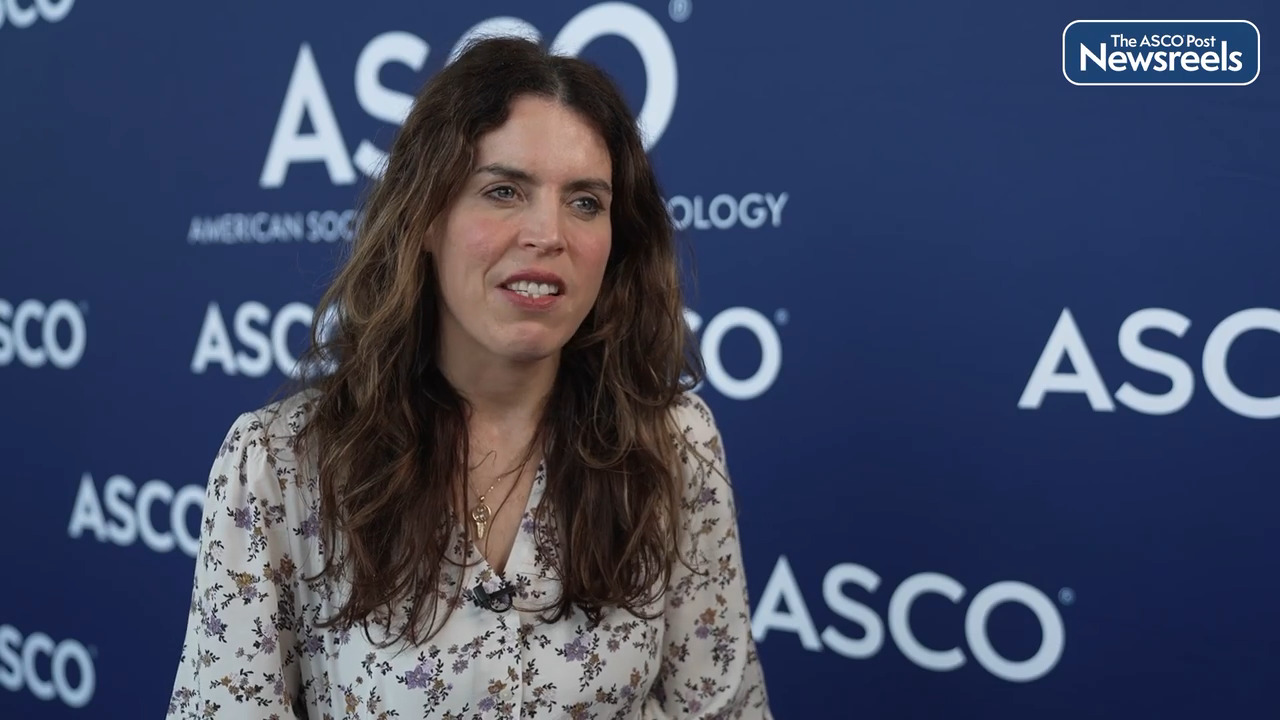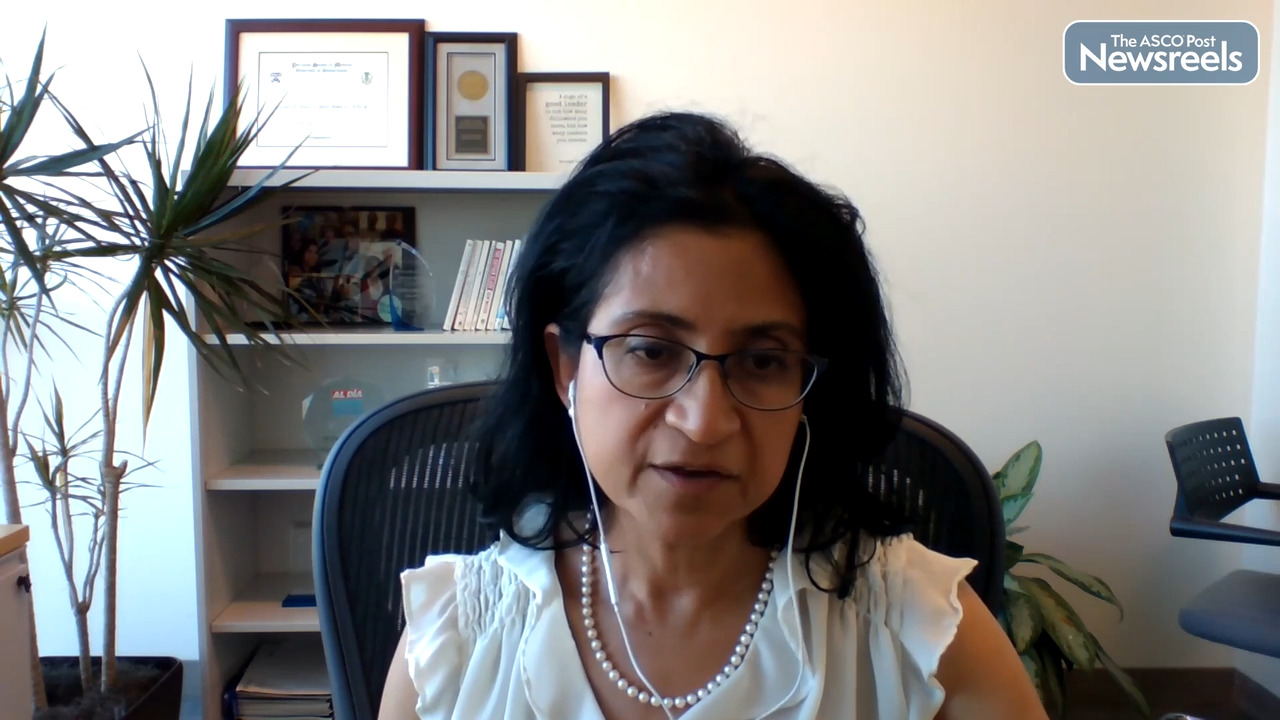Transcript
Disclaimer: This video transcript has not been proofread or edited and may contain errors.
The optimal management of older patients with DLBCL remains unclear and is very variable from practice to practice. The most commonly used regimen for older patients with diffuse large B-cell lymphoma is a regimen called R-mini-CHOP, which is more or less a 50% dose reduction in the cumulative chemotherapy compared to a younger patient who gets R-CHOP21. At our institution, we have developed a regimen called split-dose R-CHOP, which basically fractionates R-CHOP21 into two half doses with full-dose rituximab given on day one, and a 50% dose reduction of the CHOP regimen on day one and day 15, so that a 28-day cycle of split-dose R-CHOP gave the same chemo cumulative dose of chemotherapy as R-CHOP21. We designed this study as a way to deliver the same dose intensity to older patients, but by fractionating it, making it more tolerable to a patient population that's at higher risk of the toxicities associated with chemotherapy.
In addition, because older patients could benefit from a truncated chemotherapy regimen, we included an interim analysis of patients, where we looked at them using PET-CT and MRD, using a cell-free DNA assay-
[inaudible 00:01:33]-
... to look at the depth of response after two months of split-dose R-CHOP. For those patients who are both MRD-negative and, by Deauville criteria, a PET score of one, two, or three, those patients were then offered an abbreviated chemotherapy arm where they would finish after four months of split-dose R-CHOP instead of six months. Here, we are presenting our interim feasibility endpoint, which was based on the end-of-treatment CR rate. We're reporting data on 14 patients who have completed treatment, and our end-of-CR rate with 71%, meeting our interim feasibility endpoint early with 10 of the 14 patients achieving a complete remission.
Overall, this regimen was well-tolerated. There were adverse events as described in the data that we've shown, but some of these are to be expected treating an older patient population, but there were no treatment-related deaths directly related to the chemotherapy. The most interesting aspect of this data was, however, that analysis we did using PET-CT and MRD. For six patients, who were both MRD-negative and PET-CT-negative, five of the six went onto the abbreviated arm. Even though they finished this truncated regimen, all of them remained in remission to-date. This shows that there might be power in this early-responding group that have a high in-depth-
[inaudible 00:03:03]-
... response of this early interim analysis. We look forward to sharing this data at ASCO, and continuing to enroll patients, but we think that this could become a paradigm on how to treat older patients with DLBCL using novel endpoints, while offering a regimen with the same dose intensity that we offer younger patients to improve efficacy.
